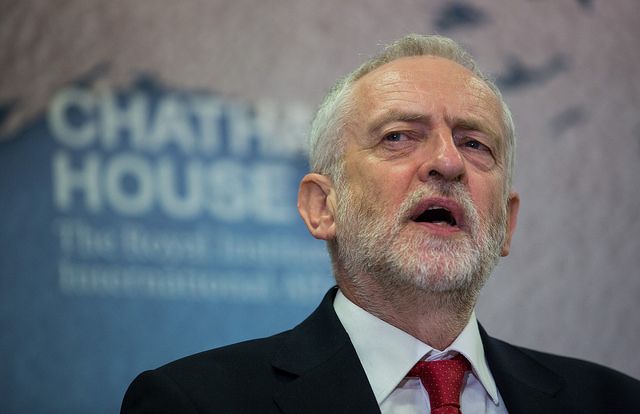Ollie Smith argues Labour need to step up and face the challenges of Brexit, following its omission from the Party Conference
Labour surprised the nation by gaining seats in June’s election and is currently cruising on a wave of populist optimism alongside perhaps the most shambolic government in living memory. This has given Jeremy Corbyn the confidence at the Labour Conference to present himself as a Prime Minister in waiting.
Something which captured the headlines at Conference, however, was debate surrounding Brexit, or rather the lack of it. Brexit is the priority issue of our time and unless properly dealt with will seriously impede Labour’s efforts to bring equality and ensure people can achieve their aspirations.
Jeremy Corbyn, however, is a historic Eurosceptic
The Labour manifesto, for example, credited raising corporation tax as a key means of funding its investment schemes. The potential economic fallout of Brexit, however, could seriously damage businesses and thus Labour's ability to fund its socialist programme. Why then was the most pressing political challenge of our time not properly debated at Conference? Whilst a final vote on current Labour Brexit policy was eventually held, there was no debate or voting on potential policies such as remaining in the single market.
The far left pressure and campaign group Momentum had a plethora of members at Labour conference and used its new found power to block meaningful debate or votes on Brexit, instead pushing for other issues. This seems strange given such a large number of Corbyn supporters are young, outward looking and pro EU. Jeremy Corbyn, however, is a historic Eurosceptic.
The Party’s official approach is to renegotiate access but not remain a member of the single market during a transitional period once the two year exit negotiations have ended. The EU, however, has so far taken a hard-line approach to compromise, first with David Cameron and now David Davis. High profile Labour politicians such as Sadiq Khan last week spoke about wanting to remain in the single market; this may be a more realistic goal that benefits Britain best and is in-tune with the Party membership’s wishes.
The majority of Labour voters backed Remain but a large number also voted for Leave
Article 50 was triggered without a clear plan or agreement within the cabinet and, as Boris Johnson’s recent antics highlight, this is still true. David Davis is struggling to meet the demands of his position with an outdated view of international relations and pales in comparison to the talent and determination of Shadow Brexit Secretary Sir Keir Starmer. The Tories have been reducing corporation tax to try and make businesses more competitive; if they believe this is the best option now they will likely continue to lower it to remain competitive if we lose single market access.
Shadow Brexit Secretary Sir Keir Starmer
I heard an interesting opinion recently that current politics because of Brexit is less a left/right issue but rather whether you are outward or inward looking. The majority of Labour voters backed Remain but a large number also voted for Leave. Arguably one reason Labour did better than expected in the general election was its ambiguous Brexit approach that held onto both sides. An election, however, is not going to be called during the Brexit process: it would be incredibly damaging for Britain and the Brexit negotiations, while the Tories would also never risk it with current polling; unfortunately this means very little will be achieved domestically.
Without the threat of an election losing it Leave voters, Labour can take a firm, definitive stance to put pressure on the Conservatives and avert the worst outcomes of Brexit. Backing membership of the single market would be supported by its members and help ensure the government does not make a failure of Brexit. The voice of reason must prevail; Labour can provide it.
Featured image: Flickr/Chatham House









